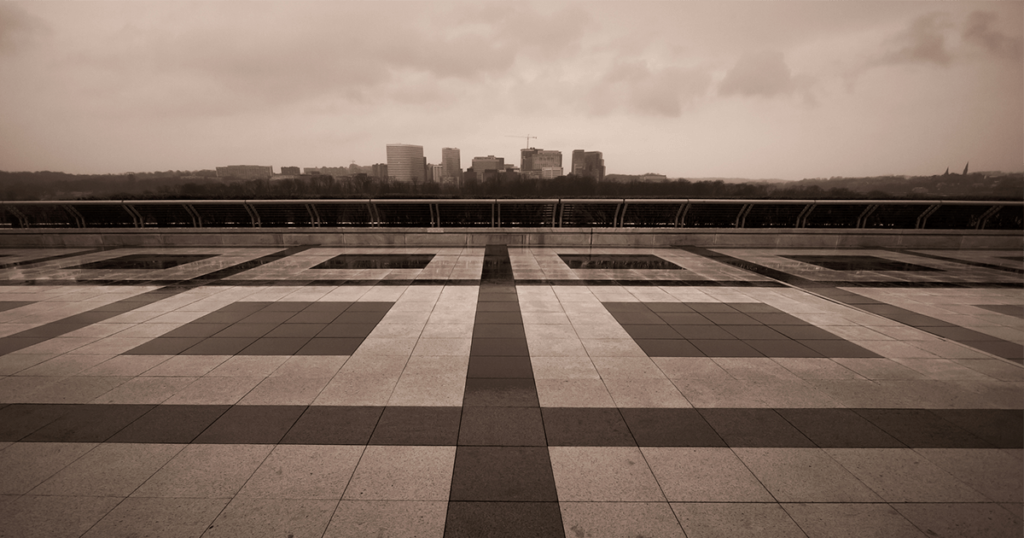
This Sunday evening, the annual Kennedy Center Honors gala—celebrating five artists whose achievements over a lifetime have nourished American culture—will be held for the 40th time. In the early days of this plush affair, classical musicians were always feted. Marian Anderson, Aaron Copland, Leonard Bernstein, Rudolf Serkin, Isaac Stern, Beverly Sills, and Yehudi Menuhin, among many others, were recognized. During the past decade, however, several years have passed with no classical musician included in the group. So it is again this year. No honor, then, for the likes of Kathleen Battle or André Watts, Mitsuko Uchida or Philip Glass, Michael Tilson Thomas or Samuel Ramey. Lionel Richie has been deemed a worthier recipient.
In 1987, the violinist Nathan Milstein was among the honorees, joining Bette Davis, Sammy Davis Jr., Perry Como, and the choreographer Alwin Nikolais. Born in Odessa in 1904, Milstein was known for his effortless virtuosity, his patrician tone, and a keen intelligence that informed a repertoire ranging from the Sonatas and Partitas of Bach to the grand concertos of the Romantic era to several masterpieces of the 20th century. By the time he arrived in Washington 30 years ago, his glorious career had already come to an end. In his memoir, From Russia to the West (co-written with Solomon Volkov and published in 1990, two years before Milstein’s death), the violinist fondly recalled meeting Ronald Reagan, who charmed the honorees with affectionate tributes to them all. (American presidents typically play an important part in the festivities, though this year the president will be absent, “to allow the honorees to celebrate without any political distraction.” That’s from the official White House announcement, and all parties seem happy with the arrangement.) Milstein also met Secretary of State George Shultz—the actual awards were presented before the gala, at a luncheon held at the State Department. Leontyne Price, herself a former honoree, sang “America the Beautiful,” after which Shultz presented his remarks, alluding to the forthcoming summit between Reagan and Mikhail Gorbachev and expressing the hope that in future times, “nations will be more recognized for their art than for the force of their weapons.”
Having lived through most of the 20th century, Milstein was too cynical and wise to be optimistic. “These are nice words,” he wrote, “and of course one would like to see it happen, though in my opinion there is little hope that it will.” At least Shultz had expressed the sentiment, had believed enough in the value of the arts to publicly extol their virtues.
A few weeks ago, I went to the Kennedy Center to attend a recital. I had arrived early, and though it was unseasonably cold, I went out onto the expansive terrace, a glass of whiskey in hand, to take in the nighttime view across the Potomac River. Usually, the terrace is crowded with concertgoers, but that night I was alone, and the solitude was as invigorating as the frigid, biting air. When I turned to head back inside, I noticed something that had somehow eluded me in the two decades I’ve been attending concerts there: an inscription from John F. Kennedy etched into the façade:
I look forward to an America which will reward achievement in the arts as we reward achievement in business or statecraft. I look forward to an America which will steadily raise the standards of artistic accomplishment and which will steadily enlarge cultural opportunities for all of our citizens. And I look forward to an America which commands respect throughout the world not only for its strength but for its civilization as well.
Kennedy delivered those remarks, it turns out, at Amherst College in the autumn of 1963—a quarter of a century before Shultz’s speech, at another volatile time in history. I suppose I should have found the words uplifting, yet they only left me dejected; all I could think of was how hollow they sounded in this, our current political moment. Milstein’s cynicism—or shall I call it realism—seems more apt to me than ever.

